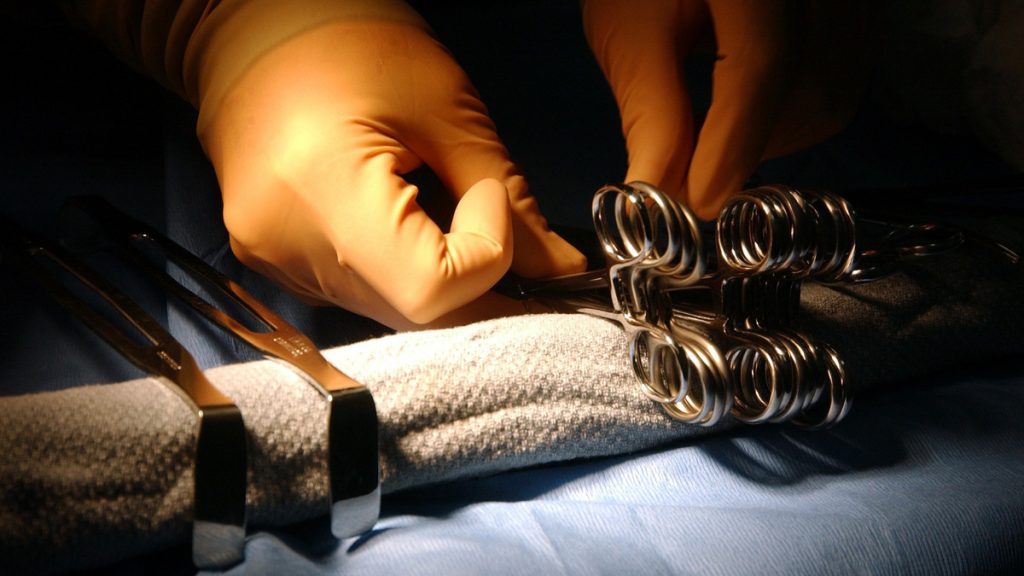Complete Guide to a Surgical Wound

If you’ve recently undergone surgery or an operation, there’s a good chance that you now have a surgical wound. But don’t worry, we’re here to answer any questions you may have about surgical wounds — including how to care for them to speed up the healing process.
Table of contents
- How to Treat and Manage Surgical Wounds at Home
- What Is a Surgical Wound?
- What Are the Types of Surgical Wounds?
- How Long Does It Take for a Surgical Wound to Heal?
- What Are the Different Stages of Surgical Wound Healing?
- What Makes a Surgical Wound Prone to Infection?
- What Are the Symptoms of Surgical Wound Infections?
- How Do You Treat Surgical Wound Infections?
- Can You Get Surgical Wound Care at Home?
- What Can I Do to Improve Surgical Wound Healing?
- Where Are the Best Surgical Wound Care Clinics in San Diego?
- Surgical Wound Care in San Diego
How to Treat and Manage Surgical Wounds at Home
Surgical wounds are a result of surgery, so there’s a good chance that they were a necessary and potentially life-saving measure. Once you undergo surgery, it’s essential to learn about the types of surgical wounds, what you can expect from the healing process, and how to take care of your wound at home.
What Is a Surgical Wound?
As their name suggests, surgical wounds result from surgery, differentiating them from typical wounds. They are usually a cut or incision made by a scalpel during a surgery process, though they can also result from a surgical drain.
Unlike accidental wounds, surgical wounds are always made intentionally to facilitate an operation or another type of surgical procedure. Many surgical wounds are closed by sutures. However, they are sometimes left open to heal.
What Are the Types of Surgical Wounds?
Surgical wounds can fall into one of four categories, depending on how clean or contaminated the wound is. Categories are also broken down by surgical wound location and the potential risk of infection.
The four classes are:
- Class 1 are clean wounds that are not infected and show no signs of inflammation.
- Class 2 are surgical wounds that may not show signs of infection but are at an increased risk because of their location. This can include those involving the respiratory, genital, or urinary tracts.
- Class 3 are contaminated wounds or wounds resulting from gastrointestinal tract operations. They can also be wounds in which an outside object has come into contact with the skin.
- Class 4 wounds are known as dirty-infected wounds. They’re wounds with clinical infection or old traumatic wounds with devitalized tissue.
How Long Does It Take for a Surgical Wound to Heal?
Surgical wound recovery varies depending on the type and location of the wound. On average, surgical wounds can take weeks or months to heal fully. This, of course, is largely dependent on a person’s general health and the type of surgery.
A common surgical wound is the kind made to facilitate cesarean sections (C-sections). These kinds of wounds, for example, can be completely healed in about six to eight weeks.
Other surgical wounds can be quicker to heal. Laparoscopic incisions, for example, are smaller openings in the skin that are just large enough to fit surgical instruments. This surgical process involves multiple openings in the skin that typically heal faster.
How long should you keep a surgical wound covered? It depends on the wound, but it’s better to err on the side of keeping it covered and dry for longer than not.
What Are the Different Stages of Surgical Wound Healing?
The human body heals a wound in four different stages. When it comes to surgical wound healing stages, you can expect the following four:
- Stage 1: Hemostasis. The body is focused on stopping the bleeding at this point—blood clots within minutes to close and heal the wound.
- Stage 2: Clotting. The clotting and scabbing phase is next and involves blood vessels narrowing to heal the wound, clotting cells in the blood kicking in to make a plug, and scabbing. It can also involve inflammation, which is the process of cleaning and healing the wound.
- Stage 3: Growth and proliferative. At this stage, the body starts to rebuild the wound site. Red blood cells create new tissues, while collagen helps to repair the skin.
- Stage 4: Maturation. This takes place after the wound appears closed and “repaired.” At this stage, the body is repairing and strengthening the area.
What Makes a Surgical Wound Prone to Infection?
There are a variety of potential risk factors for a surgical wound infection. To summarize it succinctly, it really all comes down to germs.
An infected surgical wound can be caused by germs on the skin that spread to a wound or germs from inside the body. They can also result from germs in the environment, such as those in a hospital operating room or on the hands of a surgeon.
People are at a higher risk of developing a surgical wound infection if they have poorly controlled diabetes, immune system problems, undergo surgery lasting longer than two hours, or are a smoker or overweight.
It’s also important to learn how to clean a surgical wound to prevent infection, especially in the early stages.
What Are the Symptoms of Surgical Wound Infections?
If you’re concerned about surgical wound infections, you should monitor your symptoms. Some potential signs of an infection include a wound that appears hot to the touch, painful, or unusually red. Wounds that have pus draining from them may also be infected.
Along with the wound site symptoms, an infected surgical wound may also cause you to have a fever or feel sick.
How Do You Treat Surgical Wound Infections?
Treatment for surgical wound infections can include a regimen of antibiotics. It can also include debridement, which is the removal of dead or infected issues to improve the healing process.
Infections can also be treated through general wound care such as general cleaning and regular dressing changes. These wound care steps can be performed at home or by a nurse at a medical facility.
Can You Get Surgical Wound Care at Home?
Generally speaking, most at-home wound care is carried out by the patient or a close family member.
However, it is possible to hire a nurse or another medical professional that can perform in home wound care services — including treatment of surgical wounds at your place of residence. If you only have a question, a telemedicine provider could also provide related care virtually.
What Can I Do to Improve Surgical Wound Healing?
There are some simple ways to speed up the healing process of a surgical wound.
For one, you’ll want to make sure to get plenty of protein, vitamin C, and foods rich in iron and B12. Fiber and probiotics can also help your body fight off infection.
You’ll also want to heed your doctor’s advice on activity levels. While mild movement can help the healing process, follow your doctor’s recommendations.
It’s also important to keep the wound dry, especially at first. You might be able to shower or take a bath a few days after the surgery, but check with your doctor. A good rule of thumb is that it’s better to wet the wound briefly than let it soak.
You may also be wondering about the potential benefits of salt water. While good for healthy skin, it’s recommended that you avoid getting salt water on a surgical wound.
Where Are the Best Surgical Wound Care Clinics in San Diego?
If you have a surgical wound and are interested in professional care, these are some excellent wound care clinics in San Diego. All three are great options if you need additional help caring for and healing your surgical wound.
South Bay Wound Care
- 1111 Broadway, Ste 305, Chula Vista, CA 91911
- (619) 567-0499
- Mon-Fri 8 a.m. to 5 p.m., closed Saturday and Sunday
South Bay Wound Care is a clinic specializing in treating all kinds of wounds, including non-healing wounds or wounds that are healing poorly after two weeks of standard treatment. The facility also partners with various healthcare specialists to deliver excellent and holistic treatment for their patients.
Wound Healing Center – Sharp Grossmont Hospital
- 5555 Grossmont Center Dr, La Mesa, CA 91942
- (619) 740-4160
- Hospital is open 24 hours, call for hours
The Wound Healing Center at Sharp Grossmont Hospital features one of the most comprehensive wound diagnosis and treatment centers in the San Diego region. In addition to highly trained staff and medical professionals, it also features state-of-the-art technology, such as the only multi-place hyperbaric chamber in East County.
UCSD Medical Center Wound Clinic
- 200 W Arbor Dr, San Diego, CA 92103
- (619) 543-6001
- Hospital is open 24 hours, call for hours
The Wound Clinic at the UCSD Medical Center specializes in the advanced treatment of wounds, including surgical wounds. Experienced physicians at UCSD provide a range of wound care services, including hyperbaric oxygen therapy, wound debridement, and holistic care.
Surgical Wound Care in San Diego
Whether you have an infected surgical wound or you’re just curious about the healing process, it’s a good idea to research the symptoms of infection, how to care for a wound at home, and what to do to speed up the process.
Additionally, keep in mind that there are many medical professionals and wound care clinics in San Diego who are ready to help you in the worst-case scenarios.






